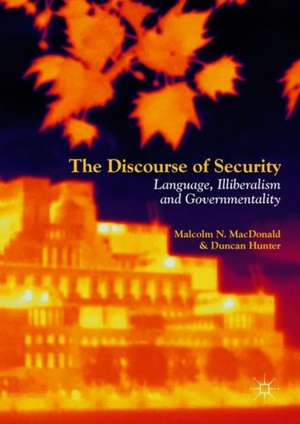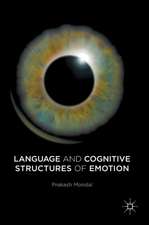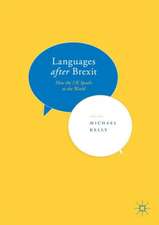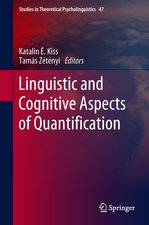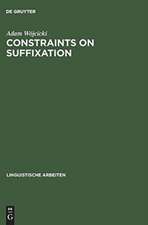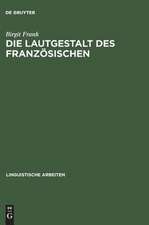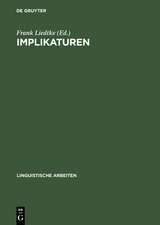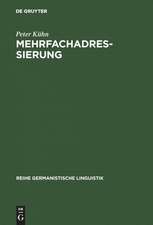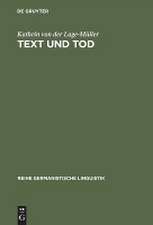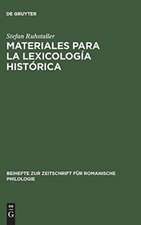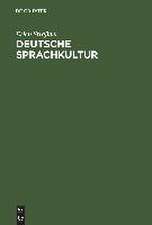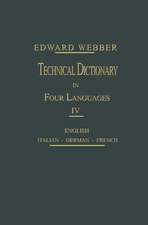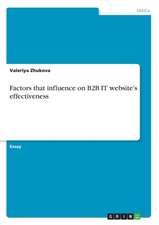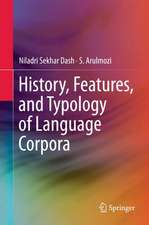The Discourse of Security: Language, Illiberalism and Governmentality
Autor Malcolm N. MacDonald, Duncan Hunteren Limba Engleză Hardback – 21 noi 2018
Preț: 702.54 lei
Preț vechi: 826.53 lei
-15% Nou
Puncte Express: 1054
Preț estimativ în valută:
134.45€ • 145.99$ • 112.94£
134.45€ • 145.99$ • 112.94£
Carte tipărită la comandă
Livrare economică 22 aprilie-06 mai
Preluare comenzi: 021 569.72.76
Specificații
ISBN-13: 9783319971926
ISBN-10: 3319971921
Pagini: 384
Ilustrații: XVI, 337 p. 11 illus., 3 illus. in color.
Dimensiuni: 148 x 210 mm
Greutate: 0.58 kg
Ediția:1st ed. 2019
Editura: Springer International Publishing
Colecția Palgrave Macmillan
Locul publicării:Cham, Switzerland
ISBN-10: 3319971921
Pagini: 384
Ilustrații: XVI, 337 p. 11 illus., 3 illus. in color.
Dimensiuni: 148 x 210 mm
Greutate: 0.58 kg
Ediția:1st ed. 2019
Editura: Springer International Publishing
Colecția Palgrave Macmillan
Locul publicării:Cham, Switzerland
Cuprins
Chapter 1: Introduction.- Chapter 2: Locating the discourse.- Chapter 3: Postdisciplinary security discourse.- Chapter 4: Disciplinarity and discourse.- Chapter 5: Analysing security discourse.- Chapter 6: Biopolitics, governmentality, and the banopticon.- Chapter 7: Discourse of citizenship and security.- Chapter 8: Discourse of Olympic security.- Chapter 9: Discourse of nuclear proliferation.- Chapter 10: Discourse of post-9/11 US security organisations.- Chapter 11: Language, illiberalism and governmentality.
Notă biografică
Malcolm N. MacDonald is Associate Professor in the Centre for Applied Linguistics at the University of Warwick, UK. His research focuses on poststructuralist discourse theory and institutional discourse, medical discourse and the discourse of security; as well as intercultural communication, intercultural ethics and postcolonial theory. He has published extensively on discourse analysis, intercultural communication, and language education.
Duncan Hunter is Lecturer in Applied Linguistics and TESOL at the University of Hull, UK. His current research and teaching interests are corpus linguistics, discourse analysis and ELT professional history. Within discourse analysis, he has a particular interest in the combination of techniques, including conversational analysis, argumentation, functional grammar and corpus linguistics, to reveal features of spoken and written texts.
Textul de pe ultima copertă
‘This volume’s innovative “postdisciplinary” approach to the critical study of security discourse will be of tremendous value to Critical Discourse Analysis and Critical Security Studies researchers. MacDonald & Hunter provide a critical analytic framework specific to security discourse which combines critical discourse, corpus linguistic, and argumentative analyses with the concepts of “governmentality,” “state of exception,” and “ban-opticon.’
—Patricia L. Dunmire, Kent State University, USA
‘MacDonald and Hunter build on recent advances in critical discourse studies, using corpus-aided methods and argumentation analysis to investigate the operation of security discourses across a range of policy fields from the London Olympics to counter-terrorism to citizenship. Not only is this a ‘must read’ for critical discourse analysts and political sociologists, but its accessible style and rich case studies have much to offer political practitioners themselves.’
—Jane M. Mulderigg, University of Sheffield, UK
Malcolm N. MacDonald is Associate Professor in the Centre for Applied Linguistics at the University of Warwick, UK. His research focuses on poststructuralist discourse theory and institutional discourse, medical discourse and the discourse of security; as well as intercultural communication, intercultural ethics and postcolonial theory.
Duncan Hunter is Lecturer in Applied Linguistics and TESOL at the University of Hull, UK. His current research and teaching interests are corpus linguistics, discourse analysis and ELT professional history. His most recent focus has been methods combining discourse and corpus analysis techniques.
Caracteristici
Combines close textual analysis of authentic documents with poststructuralist and political philosophy for a truly interdisciplinary approach Examines an extensive collection comprised of four substantial corpora harvested from national and international security organisations Provides insights into how language and discourse are utilised by the UK and US governments, security organisations, and the UN Security Council in the face of major global security events
